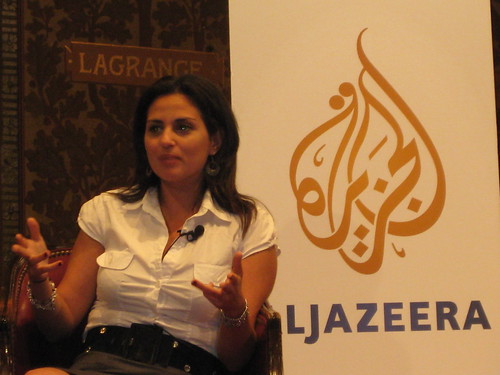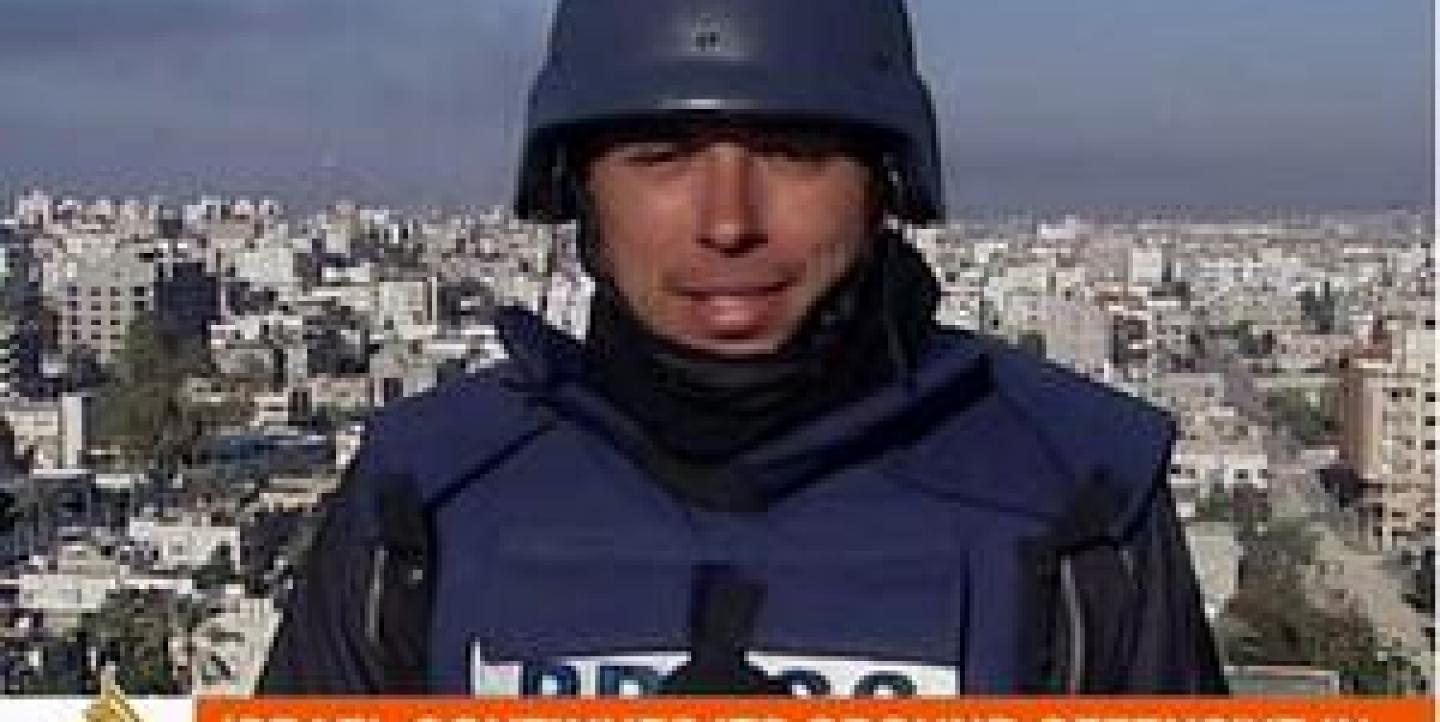It was 11 a.m. on December 28, 2008, and reporters Ayman Mohyeldin (pictured right) and Sherine Tadros were sipping coffee in a Gaza City café when they heard a loud explosion. They, like the other patrons, froze. "It’s alright, it’s alright," a waiter told the two Al Jazeera English reporters. "It’s a sonic boom."
But it didn’t feel like a sonic boom. It felt "a little bit stronger," Moheyldin remembers. And within seconds, there was another explosion. This time, Gazans began running in the streets. Text messages beeped. The reporters realized the booms were Israeli air strikes.
And they began working.
At Al Jazeera’s Gaza Bureau, Mohyeldin and Tadros were responsible for reporting the war minute by minute. They were the only reporters in Gaza City working for an English-language news channel. Most other Western news organizations had their reporters based in Jerusalem.
"The exclusivity of being in Gaza is definitely a testament to Al Jazeera...and a testament to the Western media for ignoring the [Gaza] story,” Mohyeldin said at a recent panel discussion at Georgetown University in Washington, D.C. “Major Western news organization did not deem the Gaza story either important enough, sexy enough, picturesque enough or worthy of the security risk to keep their correspondents there," he added. "I think they ultimately paid the price for that negligence.”
While Mohyeldin focused on reporting the real-time news, Tadros was busy covering the Gazan civilian experience. Through reports from hospitals, building rooftops and schools, the pair documented a massive loss of life, but also hope and struggle.

"My role was telling the human story, going to the battleground and speaking to people," said Tadros (pictured right), who accompanied Mohyeldin and Al Jazeera English's Josh Rushing on the panel. "We tried to make it relatable. We tried to give you an insight to what life was like inside that territory for 23 days when you couldn’t get out and bombs were falling around you."
The exclusive reporting from inside Gaza landed Al Jazeera English an international Emmy nomination for news earlier this year. The nomination came as the Al Jazeera Network was under fire for showing graphic images of the Iraq and Gaza wars.
"We provided not the picture of the six dead bodies, but of the one person who made it," Tadros said. "That is the power that Al Jazeera has."
To read more on Al Jazeera’s coverage of the Israel-Gaza war, please visit: http://english.aljazeera.net./focus/war_on_gaza/

